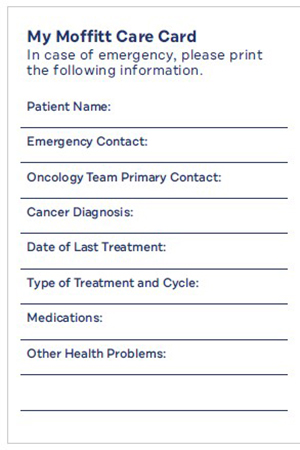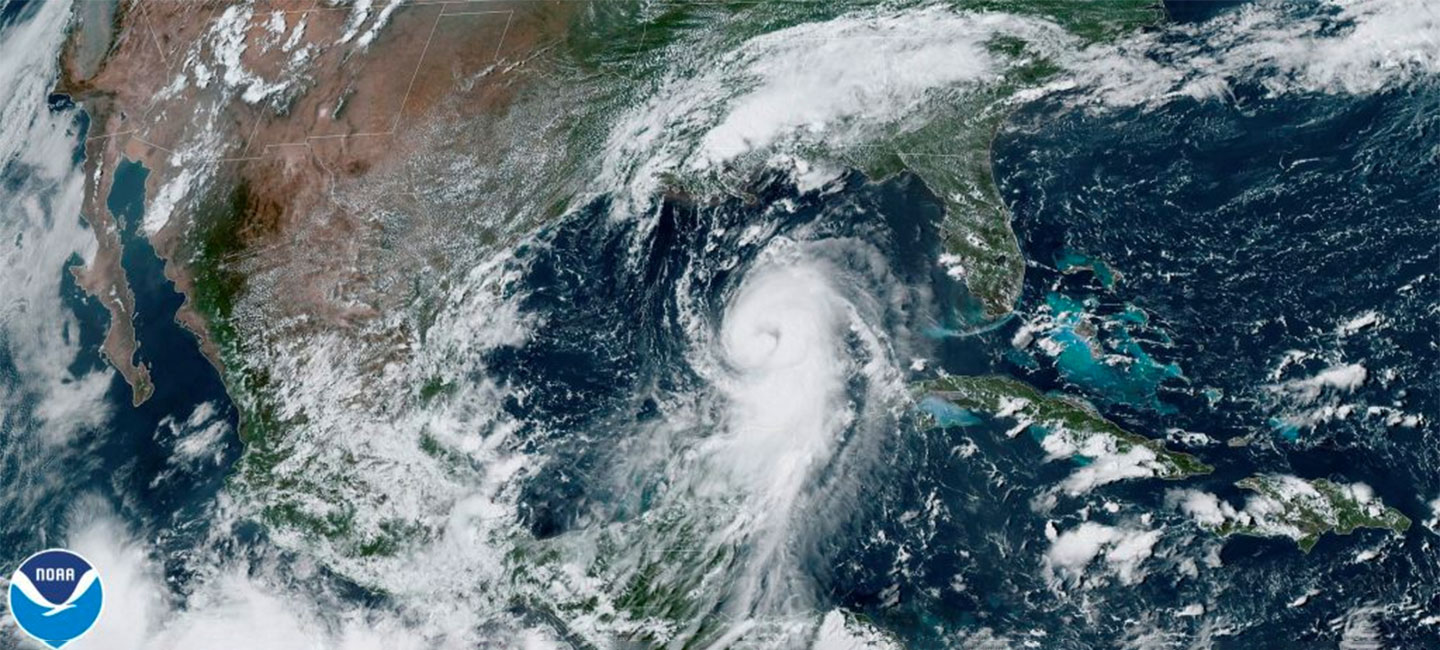Prepping for a Hurricane: 5 Tips for Cancer Patients
While stocking up on water and nonperishable foods are important, there are additional preparations cancer patients should consider to help ensure a safe and healthy experience while weathering a storm. Whether sheltering with your loved ones or evacuating to higher ground, here are some tips to keep in mind.
1. Make a plan before the storm hits.
Having a hurricane plan in place is the best way to ensure safety for you and your loved ones. Establishing an evacuation plan and thinking about how you will contact your family if you’re not together can make this process easier. The Centers for Disease Control recommends choosing two places outside your home where your family can meet if you’re separated after a storm.
If you have pets, you should identify pet-friendly shelters ahead of time. Don’t expect a shelter to accept your animals unless they are certified service animals and have the required documentation.
2. Keep your medical information on hand.

Before a storm, it’s crucial to write down information about your treatment in case you must evacuate. Key items include:
- Type and stage of cancer
- Type of treatment such as chemotherapy and/or radiation
- Date of your last treatment and information on where you are at in your treatment plan
- Name of your doctor and treatment center
- Any medicine you’re taking (cancer medicines and other medicines, including over-the-counter drugs)
- Other illnesses or health problems
Moffitt Cancer Center has provided a free wallet card for patients to track this information. We recommend writing your information on the card and laminating it to protect it from possible water damage. It’s also important to have your insurance card with you at all times.
Information about your physicians and treatment is available on the Moffitt Patient Portal, but it’s good to have a hard copy of the information just in case you don’t have online access.
3. Keep sanitization supplies in your disaster kit.
If COVID-19 has taught the public anything, it’s that infections can travel through a population faster than a storm. Cancer patients may experience low platelet and white blood cell counts, which would make them more susceptible to infection. Hand sanitizer, soap, face masks, wipes and gloves will come in handy if a patient is forced to evacuate to a shelter.
The best ways to stay healthy during a hurricane evacuation are handwashing and social distancing. Additional hygiene tips include using only clean water when bathing, using clean towels, sleeping on clean bedding, and keeping wounds and cuts bandaged.
Your kit should include items like your medications, wound care dressings, antiseptic spray and other items you need for routine care. Put the contents in a resealable, waterproof plastic bag to keep them dry. If you have any liquids in your collection, such as rubbing alcohol or liquid medications, use a separate bag for each.
4. Preregister for a special needs shelter.
If you or a family member are immunocompromised, have a medical condition or a disability that could be exacerbated in a general population shelter, you can preregister for a special needs shelter. While a special needs shelter does not provide the comfort of home or the level of care found in a medical facility, it can serve as a back-up plan to your personal sheltering plan.
Special needs shelters are designed to provide safety for people whose medical condition may require the use of electrical equipment, oxygen and/or dialysis. These shelters are designed to meet the needs of persons requiring assistance beyond the services provided at a general population shelter. However, these shelters should never be treated as emergency medical services.
To qualify for a special needs shelter, a patient must meet one of the following criteria: need assistance with medication, require observation by a health professional, need electricity for life supporting medical equipment, basic nursing care, oxygen therapy or assistance with evacuation. Florida residents can pre-register for special needs shelters by visiting the Florida Special Needs Registry.
5. Contact your provider and refill your medications.
Cancer patients should talk with their health care teams ahead of storms. Questions to ask your provider include:
- What should I do if I miss treatment?
- Do I need extra refills on medications?
- Where should I go for emergency care?
Cancer patients should also contact their pharmacies ahead of time and make sure they can pick up their medications before a storm hits. Though the storm may disrupt your medical appointments, it’s important to keep taking your medications on time. Keep medical supplies and medications on hand to last a minimum of a week.
Finally, cancer patients should remember that Moffitt’s level of care will not change during a storm. If a hurricane threatens the Tampa Bay area, patients can stay up to date on possible cancer center closings by logging onto the Patient Portal or calling the Patient Hotline at 813-745-3500. If Moffitt cancels your appointment due to a storm, a representative will contact you.



